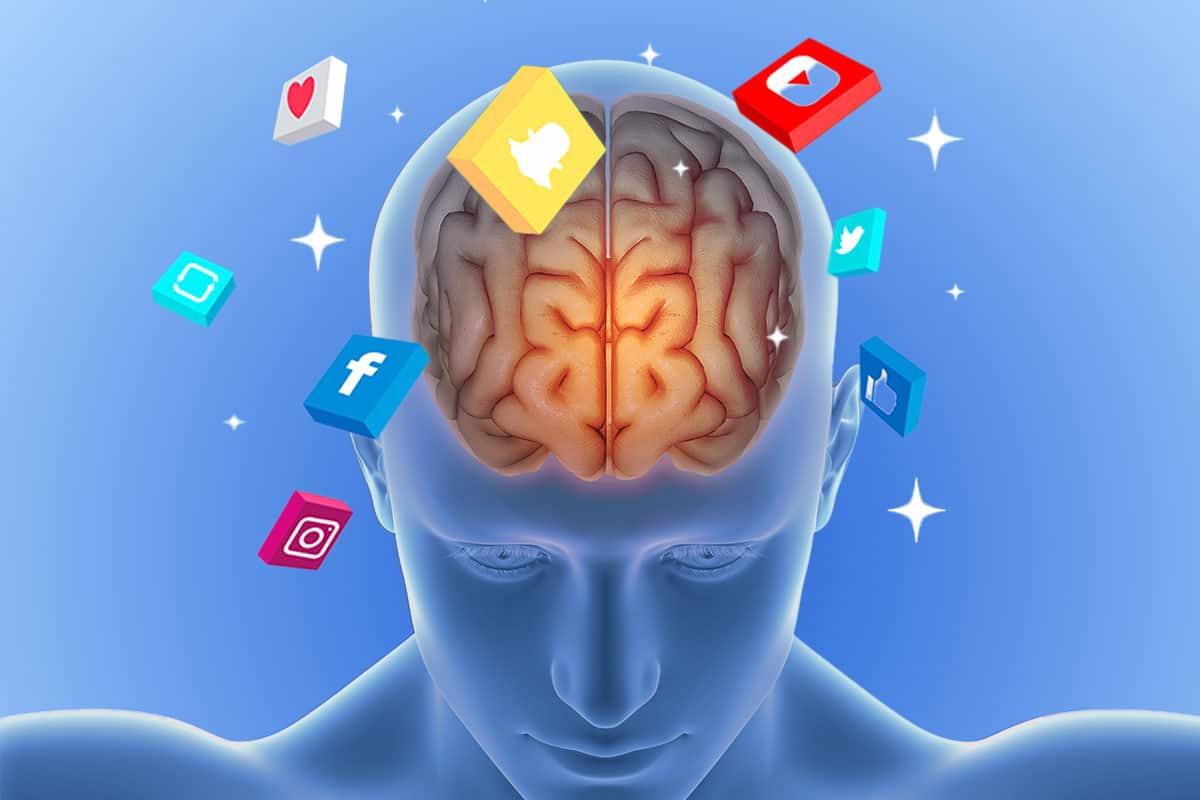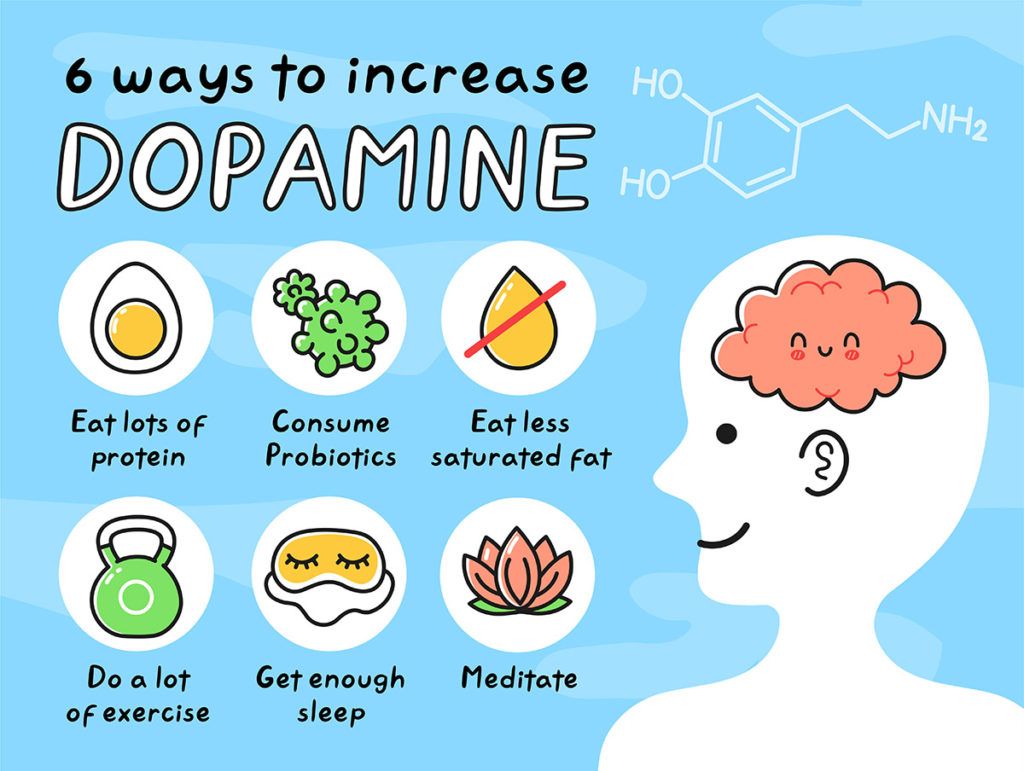
How Cheap Dopamine Is Hijacking Our Brains
Dopamine has been described as the ‘modern devil’. But why is the so-called happy hormone potentially harmful? If you binge-watch TikTok, play video games all night or constantly check Instagram, then you may be addicted to cheap dopamine.
At Game Quitters, we’ve been helping parents and teens with digital and gaming problems for nearly 10 years. In this article, we explain the negative effects of cheap dopamine and share our tips for beating digital dependency.
What is cheap dopamine?
‘Cheap dopamine’ is a new buzz phrase that describes how social media, video games and other on-screen activities are hijacking our brains and controlling our behavior.
Drugs, alcohol and gambling can be highly addictive, but they cost money. Whereas scrolling through Facebook and Snapchat or playing Roblox and Among Us is cheap – you just need a smartphone and internet access. But it’s turning us into dopamine addicts and each like, swipe and share is feeding our habit.
Why can cheap dopamine be addictive?
At Game Quitters, we’ve looked at how dopamine impacts gaming, to understand why some people keep playing even when it’s having a negative effect on their lives. We know that dopamine is not the only cause of addiction – other issues such as peer pressure, genetics and environmental factors can also play a part – but the happy hormone is certainly a contributory factor.
Before we explain how cheap dopamine is linked to addiction, it’s important to understand what dopamine is and how it affects our behavior. Put simply, dopamine is a chemical released in the brain that makes us feel good. It’s often described as the brain’s reward system because it allows us to feel pleasure. We get rewarded with a surge of dopamine when we do certain things in everyday life like eating, exercising, shopping and earning money. This makes us want to do them again, to experience the same feelings of joy. The right amount of dopamine is positive because it makes us happy and motivated. But too much dopamine is linked to poor impulse control which can lead to addiction.
Let’s look at the dopamine theory of addiction to understand why this pleasure chemical can cause so much harm. When our body starts craving more and more of the dopamine ‘reward’, the brain cannot produce enough dopamine naturally and this can leave us feeling low. Only the enjoyable activity – which for many people is online entertainment like gaming or social media – can raise dopamine to the required levels. So, we do more of the activity in a desperate attempt to experience the same rush of pleasure. But our brain shuts down even more of our ability to get dopamine, so the vicious circle of chasing dopamine continues. As addiction expert, Dr Anna Lembke, explains: “We spiral into a joy-seeking abyss.”
As video games and social media apps are cheap and highly accessible, it’s easy for the craving to become compulsive. For these reasons, cheap dopamine, Naval Ravikant says, is the ‘modern devil’. With gambling, drinking or drugs you eventually run out of money, but online entertainment is limitless. You can go down a rabbit hole and resurface hours later because the next video game or Instagram story loads automatically. But each bingeing session makes us less sensitive to the effects of dopamine, and it takes more and more dopamine to feel that same pleasure or excitement. We become increasingly dependent on digital media to keep functioning and can this can lead to video game addiction or social media addiction.
The effects of cheap dopamine
So, what does it feel like to have too much or not enough dopamine? Here are some common symptoms of a dopamine imbalance so you can recognize the signs:
Physical symptoms include:
- brain fog
- muscle cramps and stiffness
- loss of balance or coordination
- memory problems
- digestion issues
- disturbed sleep
- feeling tired and lethargic
- moving or speaking more slowly than usual
- low sex drive.
Emotional symptoms include:
- lack of motivation
- poor concentration
- no pleasure from previously enjoyed activities
- impulsiveness
- aggression
- addiction
- feeling sad and hopeless
- lack of self-esteem
- depression
- anxiety
- schizophrenia
- psychosis
- mania
- hallucinations
- false perceptions.
If you or a loved one have some of these symptoms and find the only way to relieve them is to seek instant gratification through social media apps, video games or other on-screen activities, you may be addicted to cheap dopamine.
What is healthy and natural dopamine?

We’ve only talked about cheap dopamine so far. But on the other side of the coin, there are healthy and natural dopamine sources. These are difficult and less stimulating to engage with initially. For example, would you rather spend two hours reading a book or playing your favorite video game? The answer is probably gaming – an activity that feels good in the moment, but ultimately does not provide anything for the person doing it. Reading a book might not seem as attractive, but it provides tangible benefits, and is a natural dopamine source.
Cheap dopamine sources feel great in the short term, but in the long-term they can make you weak, lazy and unproductive. Whereas natural dopamine sources might not seem very enjoyable or beneficial, but over time will help you relax and learn. Once you adopt this mentality in theory, you then need to approach it practically by doing a dopamine detox.
How to reset your behavior with a dopamine detox
Doing a dopamine detox is key in order to get your life back in control and stop being a slave to cheap dopamine. You might think a dopamine detox means not engaging in highly stimulating, cheap dopamine, but that’s not always the case. It all comes down to you and your lifestyle. If you feel that doing a classic dopamine detox – which is not engaging in any cheap dopamine at all – is right for you, go ahead. If you think you just need to moderate and balance your life, setting time limits or avoiding certain activities can also be effective. The most important thing is to look at your life, see how much engaging in cheap dopamine is affecting you and then regulate your behavior accordingly.
You need to identify which cheap dopamine sources negatively impact you the most. Perhaps you don’t have a problem with binge-watching Netflix, but you do have a problem with gaming. If this is the case, quitting or limiting time on Netflix won’t solve the problem as you’ll spend even more time on video games. But, if you quit or moderate gaming, perhaps you can relax by watching a movie instead. It’s all about having a healthy balance.
Just make sure you don’t substitute bad habits with other bad habits. Finding replacement activities that give you natural dopamine sources is a good way to develop healthy habits.
Remember, engaging in this type of dopamine source might not feel good at the start, but with time will become far more rewarding than cheap dopamine.
Need help?

If you or someone you care about can’t stop scrolling Instagram, bingeing TikTok or indulging in marathon gaming sessions, we can help.
At Game Quitters, we understand it’s not realistic to live your life without technology. That’s why our coaching programs are not about no tech, but mindful tech – harnessing all the digital world has to offer in a positive way.
Instead of living your life addicted to the thrill of cheap dopamine, we can help get your digital habits under control for good and find other off-screen activities to fill your time.
Take your first step today – apply for a Gameplan strategy call so we can see if you (or your family) are a good fit for our coaching program.
We accept families with gamers in denial but, due to high demand, we have limited spots available and cannot accept all applicants.
